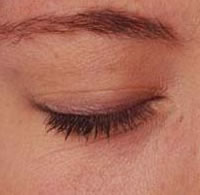 It's just as we suspected: nHumanities has not been getting enough sleep.
It's just as we suspected: nHumanities has not been getting enough sleep.According to a new report from the National Institutes of Health, nHumanities, which is one year old tomorrow, should be getting somewhere between 10 and 12 hours of sleep a night. We're not. And we're grouchy, having trouble focusing, learning rather slowly, being forgetful, losing our creativity, and responding slowly to potentially life-threatening situations.
NIH's new comprehensive guide to healthy sleep is titled Your Guide to Healthy Sleep (PDF, 60pp). The booklet gives information on sleep disorders, such as insomnia, sleep apnea, restless legs syndrome, narcolepsy, and some parasomnias, and explores other sleep topics, such as
- Common sleep myths and practical tips for getting adequate sleep,
- Coping with jet lag and nighttime shift work, and
- Avoiding dangerous drowsy driving.
Recent studies reveal that people can learn a task better if they are well rested. They also can remember better what they learned if they get a good night's sleep after learning the task than if they are sleep deprived. Volunteers had to sleep at least 6 hours to show improvement in learning, and the amount of improvement was directly tied to how much time they slept. In other words, volunteers who slept 8 hours outperformed those who slept only 6 or 7 hours. Other studies suggest that all the benefits of training for mentally challenging tasks are maximized after a good night's sleep, rather than immediately following the training or after sleeping for a short period overnight. (Your Guide 12, our emphasis)
Remember: Mary Shelley got the inspiration for Frankenstein in a dream. Sleep is creative. Sleep is good.






 ms.dsk is reading
ms.dsk is reading  Rob Koelling is reading
Rob Koelling is reading  S. Renee Dechert is reading
S. Renee Dechert is reading  Mary Ellen Ibarra-Robinson is reading
Mary Ellen Ibarra-Robinson is reading  Bill Hoagland is reading
Bill Hoagland is reading  Jennifer Sheridan is reading
Jennifer Sheridan is reading  Robyn Glasscock is reading poetry by
Robyn Glasscock is reading poetry by  Susan Watkins is reading
Susan Watkins is reading
No comments:
Post a Comment